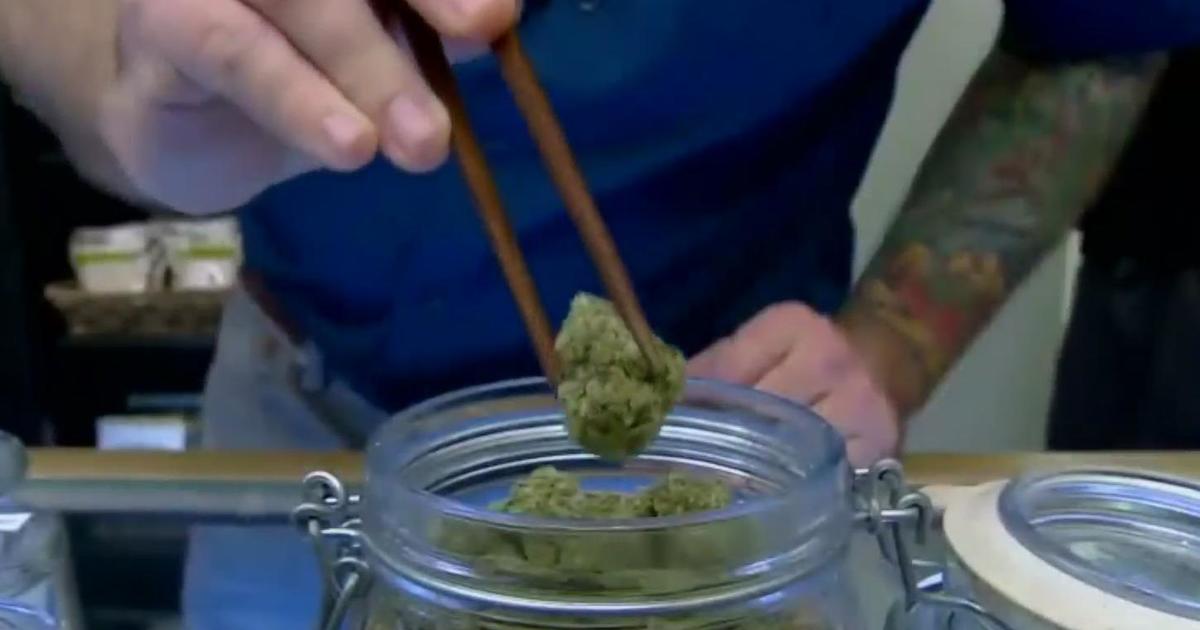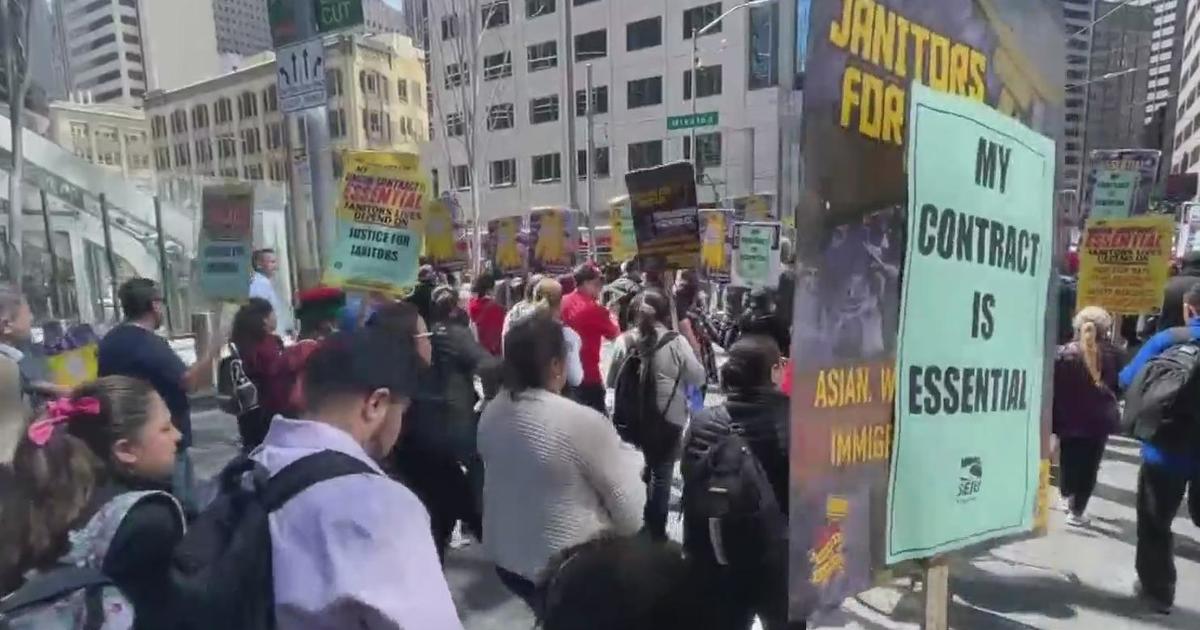Uber, Lyft Use Apps To Get Drivers To Oppose Employee Status
SAN FRANCISCO (KPIX 5) -- Fearing a proposed California law that would clarify that drivers for Uber and Lyft are employees, the companies are sending messages to drivers through the apps they use to work asking them to oppose the law.
"When I press to go with Uber, I get a notification and the notification says 'Protect Driver's Flexibility'," explained Al Aloudi, a driver with both Uber and Lyft for eight years. He says the in-app notifications are usually about important issues like money or safety, so drivers check them regularly. (The companies send less urgent messages to drivers' email.)
Aloudi walked KPIX through the notification. A click on the "Protect Driver's Flexibility" button leads to another page that says, "Fight for driver flexibility in California" and "Recent changes to California law could threaten your access to flexible work with Uber. Unless the California legislature takes action to modernize the law, you could lose your ability to work with multiple apps and control when and where you choose to drive with Uber." (Italics in the original.) Underneath that language is a button to "Sign the petition."
Tapping "Sign the petition" leads to a page with several paragraphs about the need for flexibility and a plea to "Make Your Voice Heard" followed by an editable text box already filled in with company-provided language opposing classification as employees. Drivers need only to fill in the boxes for their name, zip code phone number and email and tap to send the message to lawmakers.
Lyft has similarly sent in-app notifications to drivers, though the message is less didactic. Lyft's notification says, "Lawmakers need your input" and does not provide a pre-written script or petition to sign. It does provide a place to "Take Action" by filling in one's name, contact information, and message. Then with a tap it sends your email to lawmakers.
Aloudi says he sent a message in the Lyft app by mistake, "I just realized I did something wrong. I took the action, I wasn't reading everything." He's concerned that other drivers - especially drivers with limited English literacy using the Uber app (with it's pre-written message) - might fill in the forms because the message is among important notifications from the company.
Also, by using their own apps for the political campaign, the companies know who has participated. "It's their app, they know everything," said Uber and Lyft driver Rashed Alsanea, pointing at his phone. "Everything."
KPIX reached out to Uber and Lyft about their recent actions. Uber offered no response. Lyft sent this statement:
"We sent communications to California drivers about this important issue that has the potential to significantly impact their work with Lyft. Drivers have since sent tens of thousands of messages to state lawmakers stating that they do not want to be classified as employees, because they understand that the overwhelming majority of employees work on fixed schedules. They value the flexibility that driving with Lyft provides, and want that flexibility to be preserved. We will continue to work with lawmakers and labor leaders on a different solution so drivers can continue to control where, when, and how long they drive."
Lyft also did confirm, "If a driver chooses to write an email to their lawmakers, we can see that."
The underlying issue goes back to a State Supreme Court ruling last year. In Dynamex Operations West, Inc. v. Superior Court of Los Angeles, the court ruled that a worker is an employee unless a they qualify for an exception and rideshare drivers do not appear to qualify for an exception. A proposed law called AB 5 would codify and expand the Dynamex decision and it has already passed in the State Assembly. As the bill now works its way through the State Senate, companies like Uber and Lyft are trying to mobilize their drivers to oppose AB 5 and demand a new law to change the Dynamex decision.
As employees, drivers would be entitled to a number or rights and benefits, including worker's compensation, paid sick leave and minimum wages. And while there's no law that requires employees to be carefully scheduled, there are powerful incentives for an employer to control the number of hours an employee works.
For example, after working eight hours in a day, employees in California are entitled to overtime pay, which is one and a half times a worker's regular rate. Preventing that extra overtime cost while making sure there are enough drivers on the road might lead the companies to rigidly schedule and/or limit the time a driver spends working each day.
While some drivers, especially ones who drive as a side-gig, might lament the loss of flexibility that would likely happen if they are treated as employees, others say flexibility is already gone; at least as employees, they would have rights, too.
"The flexibility, I don't know what they're talking about," says Alsanea. "For us, still we have to work in certain times to make money. Otherwise, you're not gonna make money." He told KPIX the pay is now so low that he has no choice but to work 16 hours a day, every day. "They say was have flexibility, but actually we don't."
The driver's app displays the city of San Francisco as a heat map, with areas shaded red where drivers are offered an extra dollar or two to go pick up passengers. Alsanea shows his phone, "See? They make us go there. They control where we go." He says if he could earn a living wage driving for a scheduled 8 hour day, that would be an improvement.
Alsanea and Aloudi tell stories of being deactivated without notice or recourse, of pay delays, and say they basically work for a faceless, merciless, arbitrary computer program. And after years of what they view as mistreatment, they are in no mood to help the companies lobby lawmakers. "Now Uber and Lyft, finally they ask the driver to give them a favor," says Aloudi. "I don't do that action. We have no rights. If you get de-activated, you get deactivated. You cannot talk to nobody."



